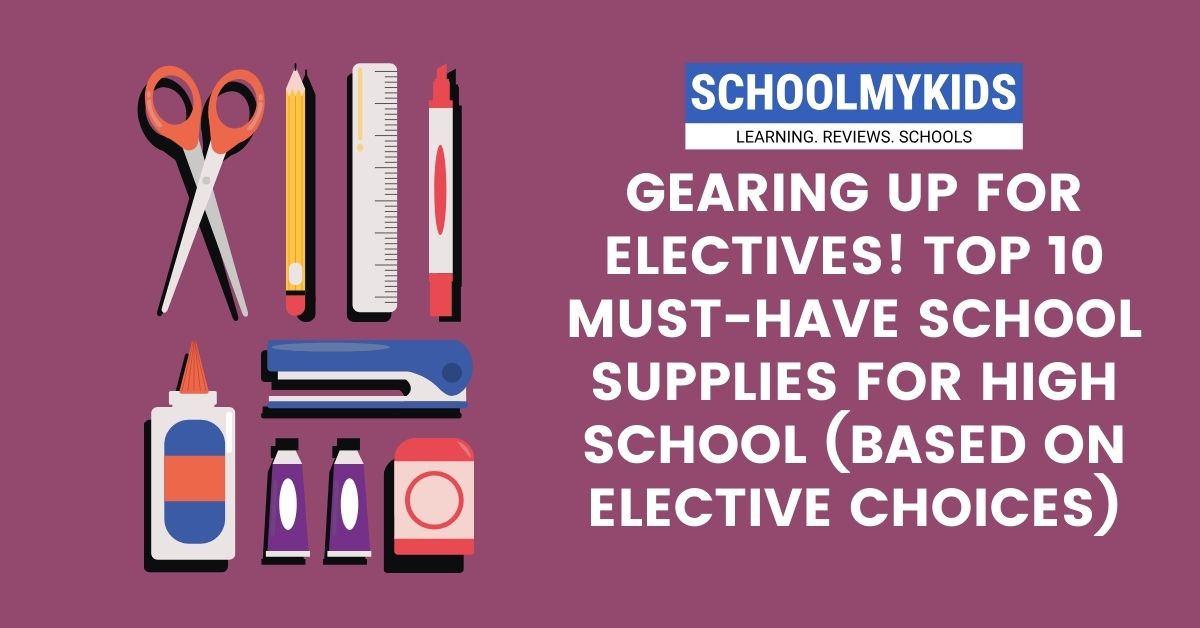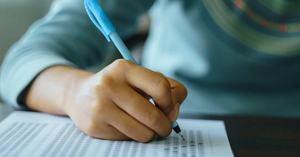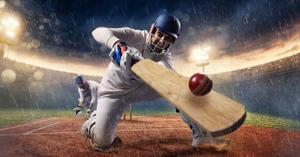High school electives are your chance to explore hidden talents, ignite passions, and delve deeper into subjects that truly excite you. But with so many amazing options, how do you prepare for each unique class? Fear not, curious minds! This guide equips you with the top 10 must-have school supplies for various electives, ensuring you hit the ground running on your elective adventures.
Before We Dive In: Essential Staples
There are a few essential supplies that transcend elective boundaries. A sturdy backpack to haul your supplies, reliable pens and pencils, and a reusable water bottle are your trusty companions throughout the school day. Highlighters and notebooks will likely come in handy across most electives, allowing you to take effective notes and organize your learning.
Now, let’s get specific! Here’s a breakdown of the top 10 elective must-haves, categorized by popular course choices:
1. Artistic Pursuits
- Visual Arts (Drawing, Painting):
- Sketchbook: Your canvas for brainstorming, practicing techniques, and showcasing your creations. Choose a size and paper quality that suits your preferred medium (pencils, charcoal, etc.). Opt for a hardcover option for better protection if you plan to carry it around frequently.
- Drawing Pencils: A good set with varying degrees of hardness (HB, 2B, 6B, etc.) allows for subtle shading and detailed work. Consider investing in mechanical pencils for convenience and to avoid constant sharpening.
- Art Supplies (Level-Specific): As you progress in art, your needs will evolve. For beginners, a basic set of colored pencils or watercolors might suffice. For more advanced courses, consider specific paints (acrylics, oils), a variety of brushes in different sizes, or even a portable easel for outdoor creations.
- Music (Band, Choir):
- Instrument-Specific Supplies: This depends entirely on your chosen instrument! Reeds for clarinets, drum sticks for percussionists, or a music stand for everyone – consult your instructor for specifics. Consider a small carrying case to keep these extras organized.
- Sheet Music Binder: Keep your sheet music organized and protected with a sturdy 3-ring binder. Dividers with customizable labels can help you categorize pieces by genre, composer, or performance date.
- Tuner (Optional, but Helpful): An electronic tuner helps you ensure your instrument is in tune, resulting in a more harmonious musical experience for you and your fellow musicians.
2. Creativity Calling
- Creative Writing:
- Journal: A dedicated journal is a haven for brainstorming ideas, jotting down inspiration, favorite quotes, or snippets of overheard conversations that spark your creativity. Choose a notebook you love – it can become your writing companion throughout the course. Consider features like lined or unlined pages, depending on your writing style and preference.
- Highlighters and Sticky Notes: When analyzing published works or researching writing techniques, these tools help you identify key points, literary devices, or interesting sentence structures in texts. Use different highlighter colors to categorize or code information for easy reference.
- Speech & Debate:
- Timer: Practice your delivery and stay within time limits with a handy timer. Download a free timer app on your phone or invest in a small, portable timer that you can easily keep track of during practice sessions.
- Recorder (Optional, but Beneficial): Record yourself practicing a speech or debate argument. Listening back allows you to identify areas for improvement in delivery, clarity, or pacing. Pay attention to filler words like “um” and “uh,” and work on projecting your voice and varying your tone for emphasis.
3. Stepping into the Lab
- Science (Biology, Chemistry, Physics):
- Lab Notebook: A dedicated lab notebook is essential for recording observations, procedures, data, and your thought processes during experiments. Look for one with pre-formatted sections for recording dates, objectives, materials, methods, results, and conclusions. This will ensure clear organization and make reviewing past experiments much easier.
- Safety Gear (Goggles, Gloves): Safety first! Specific goggles and gloves might be required depending on the lab activities you’ll be conducting. Your school will likely provide these, but consult your instructor beforehand to confirm and ensure a proper fit.
- Culinary Arts:
- Reusable Containers: Leftovers from your culinary creations are a delicious perk! Pack reusable containers in various sizes to store and transport your masterpieces. Opt for containers that are microwave-safe and dishwasher-safe for easy reheating and cleaning.
- Oven Mitts and Potholders: Protecting your hands from hot dishes is crucial in the kitchen. Invest in a good quality set of heat-resistant oven mitts and potholders that offer ample coverage for safe handling of baking sheets, pots, and pans.
4. Exploring Languages
- Foreign Language:
- Flashcards: Flashcards are a classic and effective way to memorize vocabulary and grammar rules. Create your own on sturdy index cards, or purchase pre-made decks specific to your chosen language. Utilize both sides of the card – write the word or phrase on one side and the definition or translation on the other.
- Colored Pens and Highlighters: Color-coding your notes can help you visually distinguish between different grammatical concepts or vocabulary categories. For example, use blue for verbs, green for adjectives, and yellow for nouns. This can significantly enhance memorization and recall.
- Sign Language:
- Loose-fitting Clothing: Comfortable clothing that allows for a full range of motion is ideal for practicing and mastering signs. Opt for clothes that don’t restrict your arms or shoulders, allowing for clear and expressive signing. Consider breathable fabrics like cotton or jersey for activities that might involve movement or light exercise.
5. Delving into the Digital World
- Computer Science, Programming:
- Flash Drive: A reliable flash drive allows you to easily transport and back up your code or project files. Choose a flash drive with enough storage space to accommodate your needs. Consider factors like portability and durability when making your selection.
- External Hard Drive (Optional, but Useful): For extensive coding projects or storing large datasets, an external hard drive provides additional storage space. This can be particularly helpful if you’re working with complex programs or large amounts of data.
- Journalism, Video Production:
- Portable Voice Recorder: Capture interview snippets, sound effects, or narration on the go with a handy portable voice recorder. Look for one with good audio quality and long battery life to ensure you can capture clear recordings throughout the day.
- Small Notebook: Always be prepared to jot down ideas, story leads, or interview questions. A pocket-sized notebook allows you to capture inspiration or important details in the moment, no matter where you are.
Bonus Tip: Personalize Your Space!
While not exactly a “must-have” supply, consider adding a personal touch to your elective workspace. A small picture frame with a photo that inspires you, or a motivational quote pinned to your locker can spark creativity and keep you focused throughout the semester.
Equipping yourself with the right supplies sets the stage for success in your chosen electives. Remember, the most important thing is to bring your curiosity, a willingness to learn, and a sprinkle of enthusiasm! With the right tools and the right mindset, you’re all set to embark on a semester of exploration, discovery, and academic adventures.









Be the first one to comment on this story.